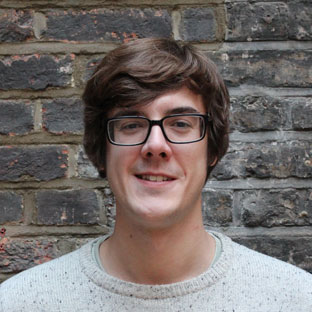When you see a police officer do you feel safer, or less safe?
This is the half-serious test that the anthropologist and activist Prof. David Graeber uses as a metric of whether somebody has a middleclass ‘mind-set’ or not. It is also a distinction that threatened to expose some social divisions in Brixton, where I live, yesterday.
‘Brixton Unite’ was, depending on which side of this social divide one situates oneself, a community-outreach day coordinated by a coalition of Lambeth Council, the police, and Job Centre plus to ‘reduce the harm caused by gangs’ to the community, or a huge display of force by the Metropolitan Police and British Transport Police to intimidate, harass and inconvenience as many residents as possible.
As I got off the Tube at Brixton station on my way home from work, a man was shouting a warning to everybody as they approached the escalators, ‘Loads of police upstairs! Watch out! Undercover police, filth everywhere!’
Commuters chuckled dismissively over their smartphones, shaking their heads at this noisy man who was making a scene with his paranoid ranting. One man tutted and made eye-contact with me, a white man in office clothes and – so he seemed to think - a natural ally with whom to share his amusement. But my personal experience of the police has not always been pleasant, and as I reached the top of the escalator and saw scores of officers in hi-vis jackets, a man being searched by the ticket machines, black-clad plain clothes police scanning the crowds, and sirens screeching up and down the road outside, I felt uncomfortable at seeing a place that looked under siege.
Outside the station a small group of activists waved placards protesting the heavy police presence, and tried to direct people’s attention to the front page of the Evening Standard, which coincidentally carried new allegations of police misconduct in the Stephen Lawrence case. There were raised voices and mini-clashes as accusations of disrupting or supporting police activity were traded. Elsewhere in Brixton people made their displeasure at seeing such numbers of active police officers known in various ways, as detailed in reports by Channel 4 and Vice online.
For some, Brixton Unite was conceived to intimidate and unsettle people, the latest stage in what they view as a deliberate ‘gentrification’ of Brixton amid a context of rocketing private property rates, evictions, the proposed sale of a community college and an influx of symbolically high-end business such as Champagne & Fromage and Foxtons estate agents. The perspective of those commuters I saw who seemed unconcerned by the police presence – the ‘If you’ve got nothing to hide you’ve got nothing to worry about’ mentality – doesn’t wash with everybody, as the political commentator Stephen Bush (who is black) illustrates vividly:
"When I think of the police, I think of being stopped-and-searched, aged 15, on the Embankment in broad daylight with everyone looking at me, an experience as humiliating as if I had been stripped naked right there on the Strand. That’s the part of me that gets nervous when I see police officers at Highbury and Islington Station of an evening, or quickens my pace around the Palace of Westminster."
If we take Lambeth Council at their word and accept that Brixton Unite was a well-intentioned attempt to engage with the community and reassure residents that problems with gang violence are being tackled, then the episode demonstrates some of the difficulties faced by public services when they attempt to engage with their communities proactively. Communities, perhaps especially urban communities, are not made up of people who think and experience the same things, as my colleague Jonathan Schifferes blogged yesterday. Some people are reassured by the sight of police officers proactively keeping the peace; others see an invasion of authorities attempting to ruin their day. In a place like Brixton where there is an ongoing debate about gentrification and, for some, a perceived divide between working class long-term residents and well-heeled newcomers attracted by the city transport links and trendy market, then tensions can arise such as those I observed at Brixton underground station yesterday.
‘Relational’ public services that productively engage with communities are difficult to achieve – as recent work by the IPPR has discussed and the RSA’s public services and communities action and research strand continues to explore. Yesterday’s events in Brixton demonstrated this further; the same actions by public services can alienate some and reassure others. It is a conundrum that the authorities in Lambeth will have to work out, but on yesterday’s showing it seems unlikely that the mass appearance of ‘bobbies on the beat’ is really the thing that will see Brixton unite.


Be the first to write a comment
Comments
Please login to post a comment or reply
Don't have an account? Click here to register.